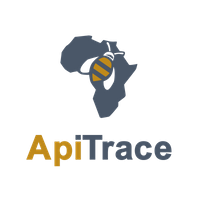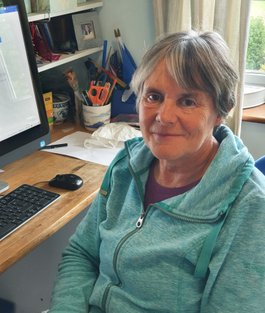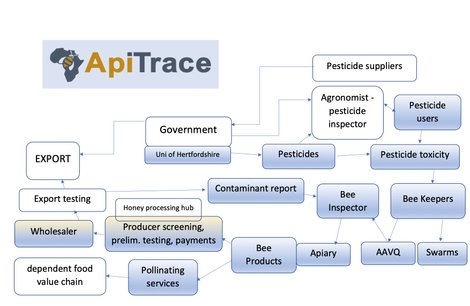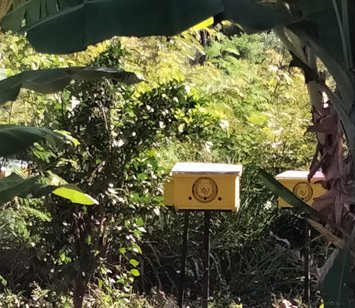World markets demand traceability for exportable food products and without technology this is an almost impossible ask for the 5 million beekeepers of sub-Saharan Africa.
ApiTrace is a honey and beeswax traceability system that starts by putting a QR code on every bee hive in an apiary whose beekeeper wants access to wholesale markets, to grow their business.

uWatch Ltd was busy developing the Bee.Watch Apiary Management System as our beekeeping director Norman Guiver was concerned about the impact of pesticides on his apiary and understood the need to record detailed data on every hive, using an app and unique QR codes for accurate identification.
In 2019 uWatch was approached by Andrew Soita of the Africa Apiculture Consortium (AAC) who explained the problems the African honey industry was having to break into world markets. Fundamentally 98% of beekeepers produce honey solely for domestic use, and as such wholesalers had no clue where the honey they were collecting from rural markets came from. Without traceability the quality cannot be guaranteed, the volumes inconsistent and hence the honey, some of which is of very high quality, cannot be exported.
With a little internet research, we were amazed to find out that while the UK currently imports almost £100 million of honey each year, a lot of it is of inferior quality, and, while the whole of Africa produces significant amounts, it only exports £16 million. The ApiTrace Partnership was formed between uWatch and the AAC and we worked together researching the issues and localising the Bee.Watch system into ApiTrace, translating it into French and Swahili. However, having established traceability, the real challenge was how to bring the wholesale market to the domestic rural producer, who may only have a few hives. In February 2022 the Partnership undertook a UK Government-funded feasibility study which came up with the answer. Two converted shipping containers fitted out with a commercial honey processing line, training room and office powered by renewables could easily generate a tonne per day of traceable market-ready honey..It is known as a Honey Processing Hub.
The aim of the ApiTrace Partnership is to provide this market access to sub-Saharan Africa’s predominantly domestic (98%) and female beekeepers (78%) through local Honey Processing Hubs (HPHs) starting with the first to be funded by this campaign.
"I am Beryl Guiver, Managing Director of uWatch.
We are moving to the final phase of this exciting and worthwhile project to get our first Honey Processing Hub on the ground in Kenya. We have been trying to raise funds and have had some success but there are many calls on funding agencies and we need your help.
I hope we have demonstrated the dramatic and life enhancing effect this project will have, especially for women in rural communities. Once the first honey processing hub is up and running we are confident investors will see the opportunities it will create and further hubs will follow.
Please help us with this crowd funding campaign.
Thank you."

As you can see Joan and Kavisa are active beekeepers working in very harsh conditions, but with the absence of pesticide use in very rural areas they have the opportunity to produce very pure and high-quality honey for export if we can only deliver them the first Honey Processing Hub.
Following the successful feasibility study carried out with UK Research and Innovation, the ApiTrace Partnership is looking to begin bringing the benefits of ApiTrace to a rural community in Kitui County. The feasibility study report is available to view here.

In this next video you will see the flow of work that the full ApiTrace system manages and how the Bee Inspectors employed by the Africa Honey Consortium can deliver what Joan and Kavisa are asking for.
ApiTrace uses technology to address issues related to poverty, gender equality, lack of opportunity and corruption. It provides traceability and commercialises the honey market for producers by making their honey a cash crop. Only a few square metres of land are needed for a family to keep six hives, providing the funds to raise and educate two children.
ApiTrace addresses 14 of the United Nations 17 Sustainable Development Goals. Of the 14 SDGs Goals that ApiTrace addresses, SDG #5 and SDG #10 are of particular importance to the project. As USAID notes, women in Kenya are significantly less likely to participate in the labour market or education, and as 78% of Kenya’s beekeepers are women and girls, ApiTrace seeks to benefit these groups in particular by creating opportunities that they can access using skills they already have, or gain training and education via African Apiculture Vocational Qualifications through the training facilities at their local HPH which will be verified by the ApiTrace Bee Inspector during monthly apiary inspections.
It creates opportunities that are accessible for all as large acreage of land are not required to be converted to monoculture, employing few people. Still, ApiTrace will instead transform a pre-existing region-wide domestic practice into a sustainable commercial industry that enhances the environment and biodiversity. Alongside this, ApiTrace allows the region’s predominantly female beekeepers to receive income using their already existing beekeeping skills.
Furthermore, as sub-Saharan Africa is predicted to be one of the regions most affected by the adverse effects of climate change, data is invaluable for academic research and for the formulation of effective policies. ApiTrace passively generates geospatial big data on climate, pesticide use and local flora through recording apiary inspections, and testing for contaminants as a by-product of the activities carried out by beekeepers and ApiTrace Bee Inspectors. As the threat to honeybees and pollinators is well understood, as well as the valuable services that they contribute to biodiversity, pesticide tracing is key to ApiTrace and essential to SDG #15 (Life on Land).
HPHs carry out testing for contaminants at the point of sale, refusing produce containing high levels of pesticide. ApiTrace will raise awareness of the negative impact of industrial pesticide usage on honeybees and the environment. Alongside this, producers who train to receive African Apiculture Vocational Qualifications at their local HPH will be informed of the importance of local biodiversity as forage for honeybees, the importance of honeybees and other pollinators within ecosystems, and the impacts of pesticide and herbicide usage on flora and fauna in the local environment.
By making their honey a cash crop, ApiTrace will further benefit local economies as beekeeping-linked businesses are set up as beekeepers expand their apiaries and invest in more equipment and services.
With a single Honey Processing Hub operating at 1/2 capacity and processing around one tonne of honey per day, ~£750,000 will be put into its local economy over the course of the year, through the payments made to beekeepers.
It is anticipated that ApiTrace will be attractive to investment (both public and private) once the prototype HPH is operational and brings the benefits of traceability and market access to rural communities.
With 50 Honey Processing Hubs, to serve around half of Kenya’s 225,000 beekeepers, there is potential to annually generate 11,000 tonnes of export-ready honey worth £55,000,000, putting £38,000,000 of ‘new money’ into Kenya’s rural economy.

Copyright © All Rights Reserved
Patent number GB2586263, published 17th February 2021.